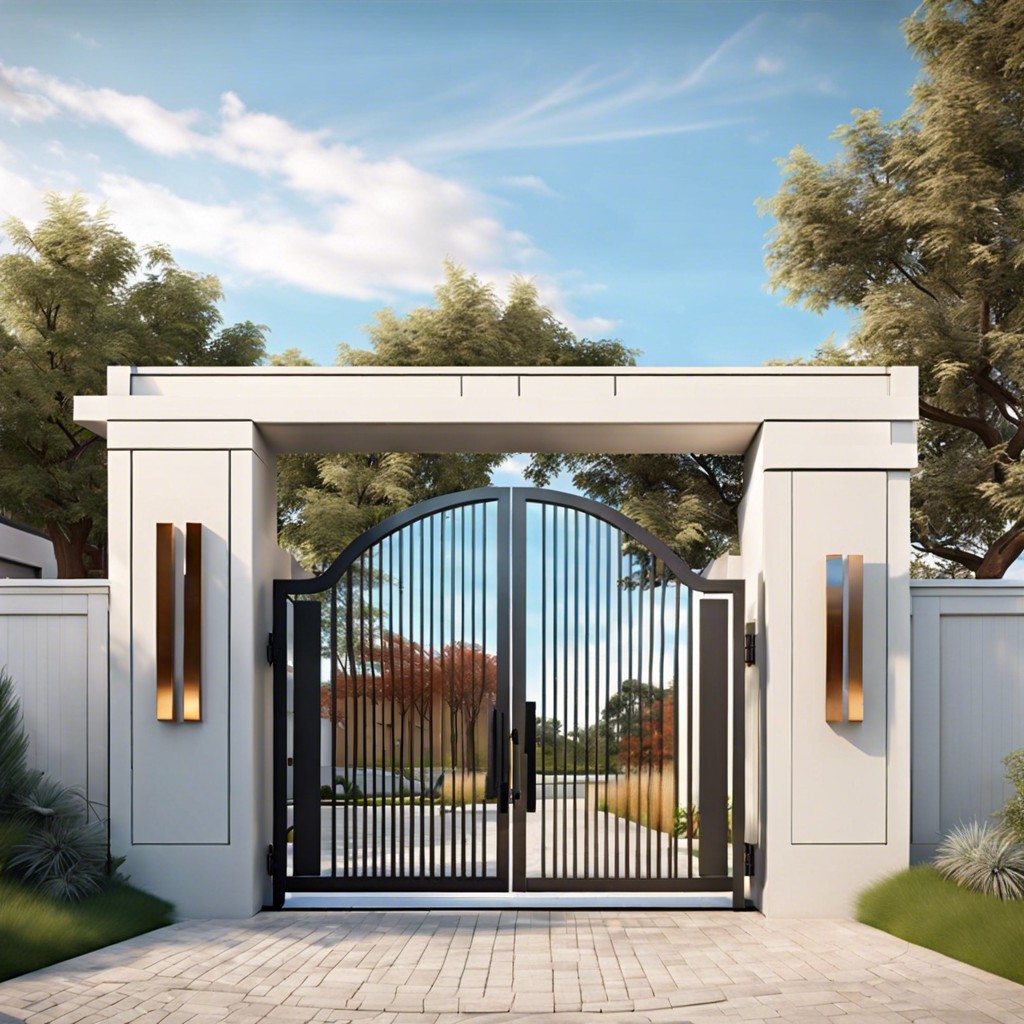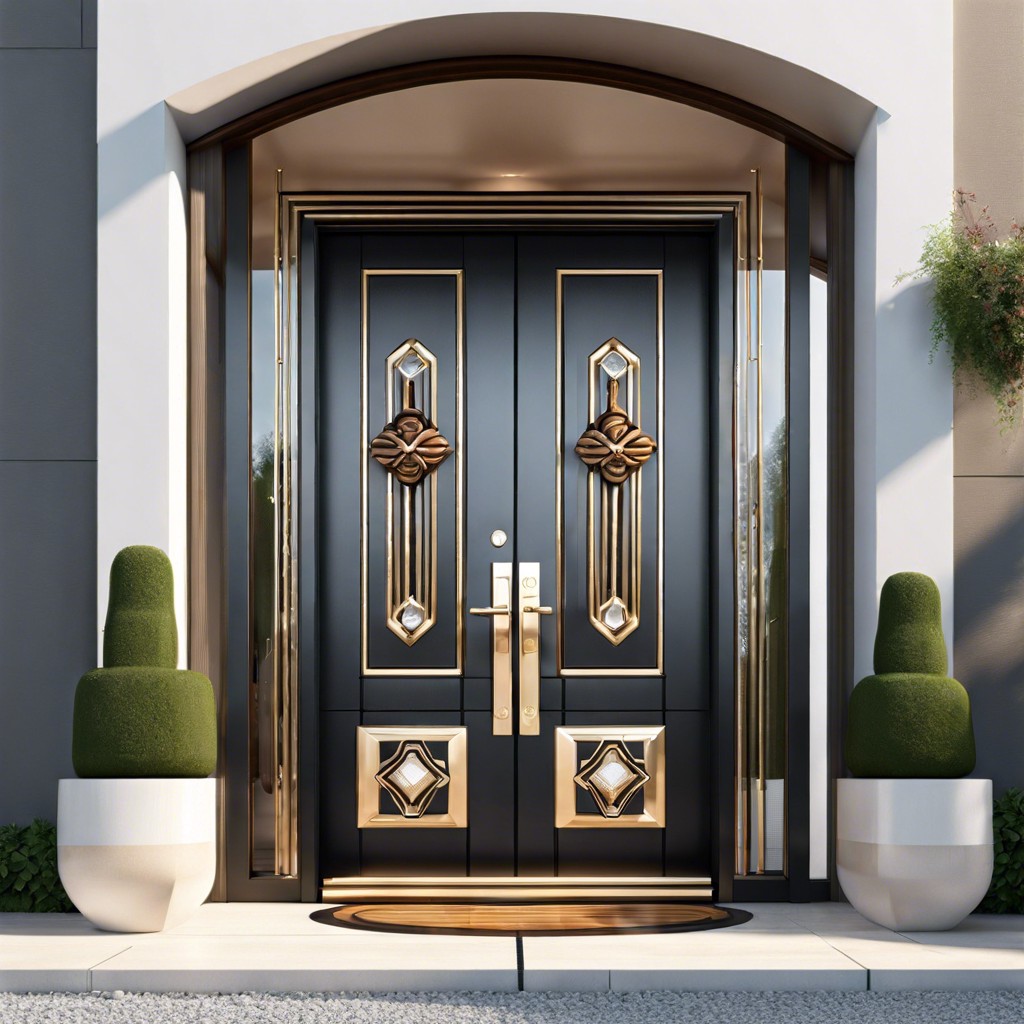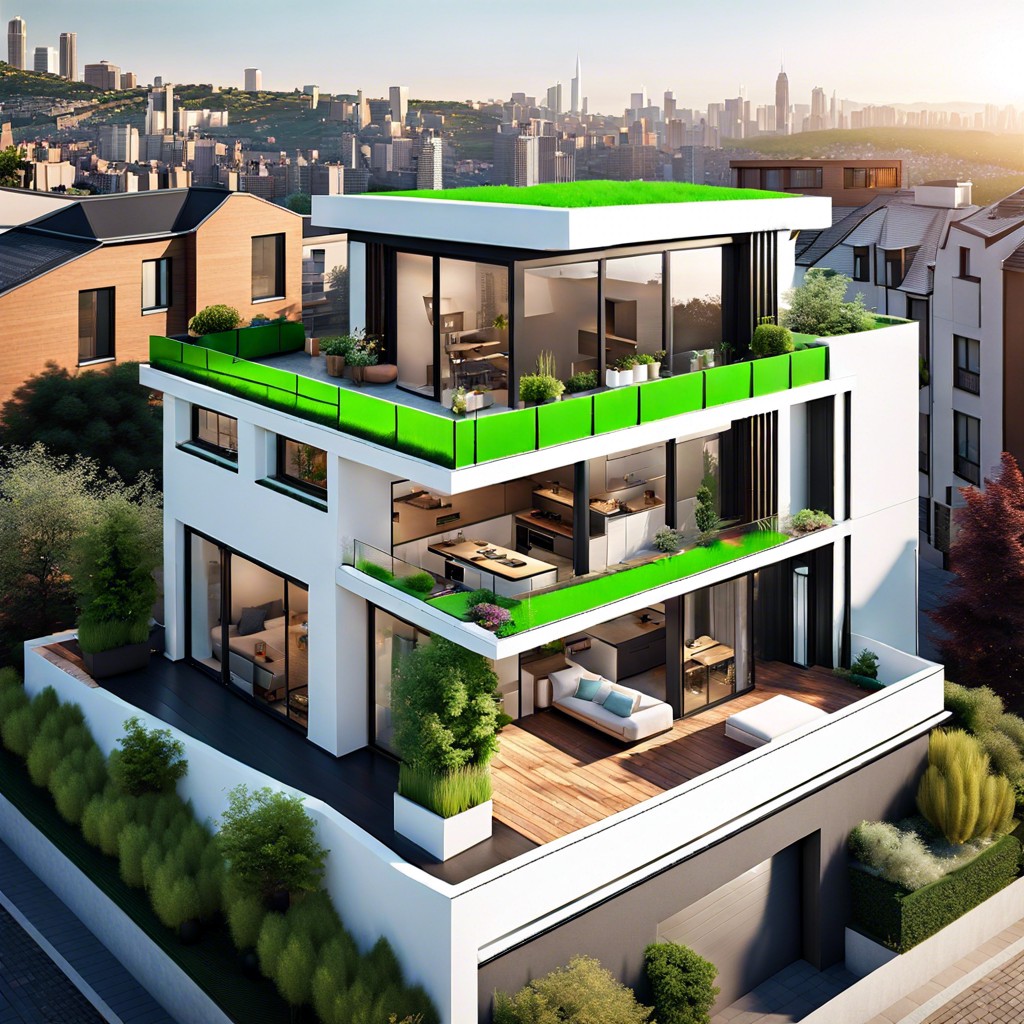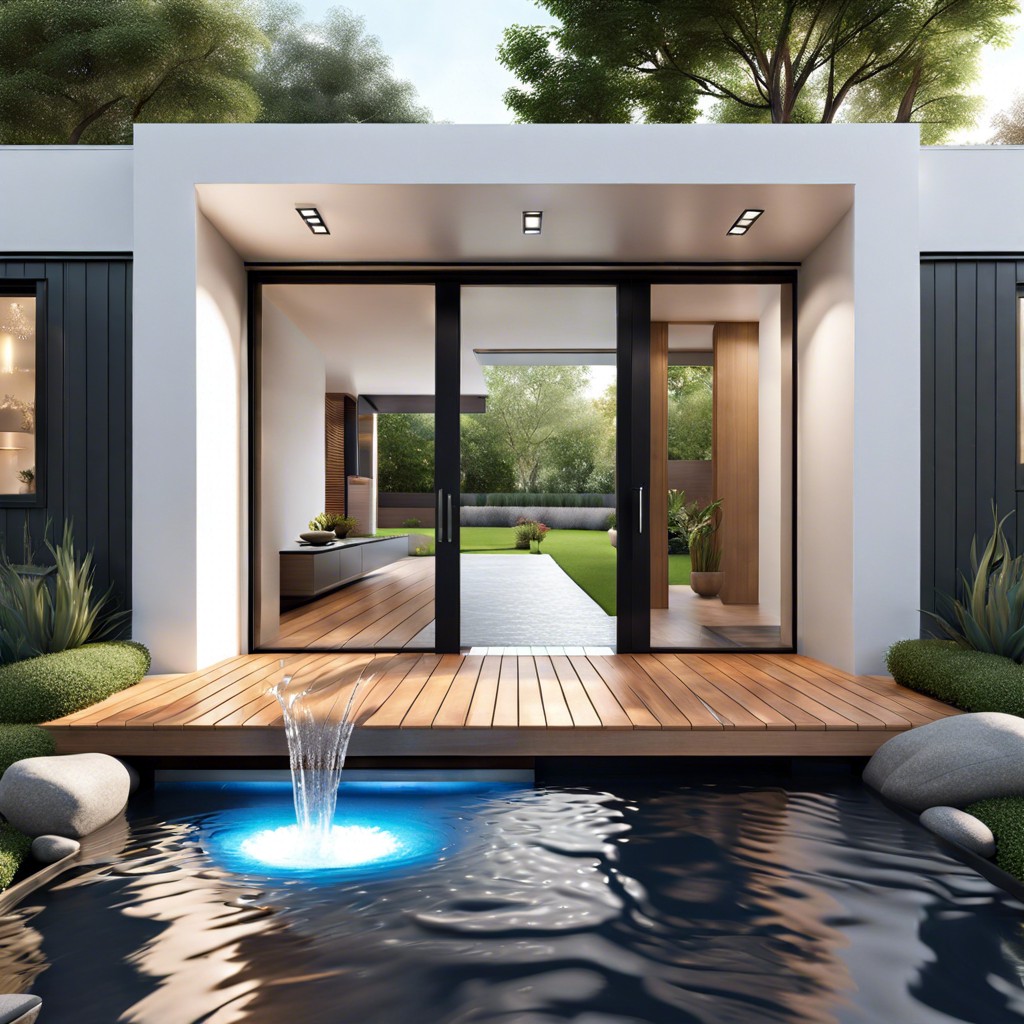Last updated on
Explore the affordability of turn key modular homes, because understanding the true costs can simplify your home buying journey and transform your dream of owning a sustainable living space into reality.
Key takeaways:
- Factory production ensures higher build quality
- Turn-key approach offers predictable and clear pricing
- Modular home costs vary based on location, size, and design
- Customization options can increase the price of prefab homes
- Consider factors like manufacturer reputation and regional differences when comparing prices
Turnkey Modular Home Pricing Breakdown
Here’s a breakdown of the average price ranges based on different types and sizes of modular homes:
- Small Modular Homes: These homes (200 to 800 square feet) typically cost between $30,000 to $130,000 after site preparation, installation, and finishing.
- Average Modular Home: For a standard 1,500 square-foot modular home, the base cost ranges from $75,000 to $150,000. Including on-site preparation, installation, and finishing, the total cost can range from $103,000 to $310,000.
- 2-Bedroom and 5-Bedroom Homes: A 2-bedroom, 2-bathroom modular home (1,000 to 1,500 square feet) might cost between $80,000 and $240,000 fully installed. Larger homes, like a 5-bedroom, 5-bathroom home (2,000 to 3,200 square feet), can range from $160,000 to $460,000.
- Custom Modular Homes: Customization can significantly increase costs. Basic prefabricated homes might cost between $80 and $160 per square foot, while custom modular homes can range from $100 to $250 per square foot for materials and $130 to $310 per square foot including installation.
- Luxury Modular Homes: For high-end finishes and custom architectural details, prices can start upwards of $300,000.
- Additional Factors: Costs for foundation work, utility hookups, and landscaping also contribute to the overall price. For example, foundations can range from $3,000 for a simple pier and beam setup to $20,000 or more for a basement foundation.
It’s important to note that these prices are subject to change based on regional variations, delivery distance, and the complexity of the design. Also, the land cost is a separate expense that needs to be considered when planning for a modular home.
Understanding Turn-Key Modular Homes
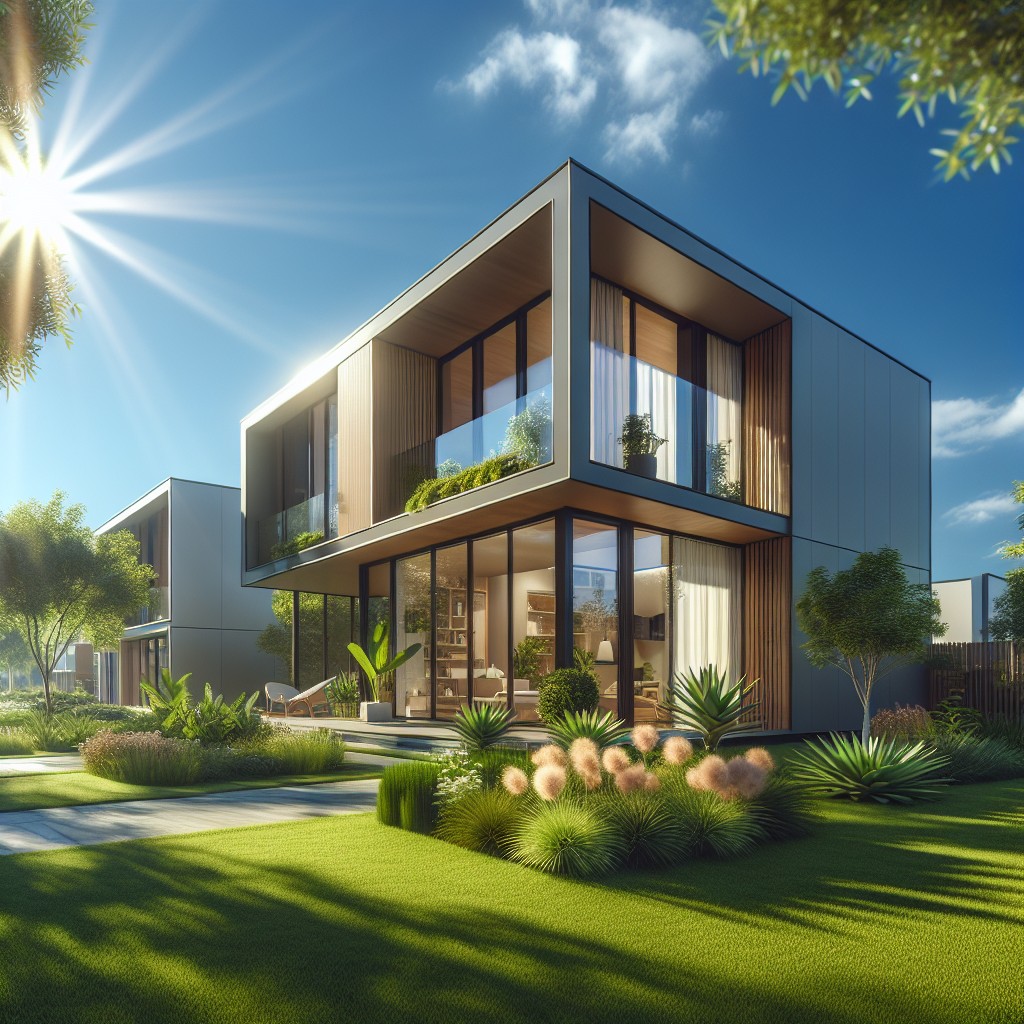
Turn-key modular homes offer you the convenience of a fully completed residence. Unlike other construction methods, this type of home is fabricated in a factory setting and then transported to your property, where the final assembly happens.
Factory Production: Modules are constructed indoors, promoting higher build quality due to controlled environments that are not impacted by weather or external delays.
Site Preparation: While the modules are being built, groundwork and foundation work proceed on-site. This parallel progression streamlines the process.
Transportation and Assembly: Finished modules are then shipped to your location and assembled by a set crew, often within a matter of days.
Final Touches: All necessary connections, such as plumbing, electricity, and HVAC, are completed. The house is inspected to ensure it adheres to local building codes and regulations.
Straightforward Pricing: The turn-key approach frequently offers a fixed price, covering all aspects of home construction, making the budgeting process clear and predictable.
By opting for a turn-key modular home, you step into a ready-made house without needing to coordinate different contractors or manage construction phases, saving time and potentially reducing stress.
Factors That Impact the Cost of a Modular House
Modular home prices can fluctuate significantly based on a variety of elements. Location plays a key role, as land costs and local building codes directly influence overall expenses.
The size and design of the house are also pivotal, with larger and more complex layouts generally costing more.
Material choices affect both the aesthetics and the price, with high-end finishes leading to higher costs.
The manufacturer selected can make a difference, with each offering different standard features and customization options at varying price points.
Delivery distance from the factory to the building site contributes to the cost, as greater distances increase transportation expenses.
Lastly, site preparation, including foundation work, utility hookups, and landscaping, must be factored into the final price of a turnkey modular home.
Modular Home Cost Breakdown
Going into the numbers, modular home costs typically include the base price for the modules themselves plus additional expenses for delivery, foundation, assembly and finishing touches.
- Base Price of Modules: This cost covers the construction of the home sections in a factory setting. It often depends on the housing market, material costs, and the design’s complexity.
- Delivery Fees: Modules need transporting from the factory to your site. These charges vary depending on the distance and the size of your home.
- Foundation Costs: A properly laid foundation is critical for assembling the modular components. Whether it’s a slab, crawl space, or basement, this will affect your budget.
- Assembly and Connection: Professional contractors are needed to assemble the modules on-site and ensure that they are securely connected to the foundation.
- Site Work and Finishing: Additional elements such as porches, decks, garages, and driveways, along with utility connections like water, sewage, and electricity, all contribute to the final expense.
- Permits and Fees: Don’t overlook the costs associated with local building permits, inspections, and potential impact fees.
Understanding these components provides a comprehensive picture of what goes into the final price tag of a turn-key modular home.
Modular Home Costs By Type
Single-wide modular homes, typically ranging from 600 to 1,300 square feet, are the most affordable, with prices starting as low as $50,000. Double-wide units, offering a larger floor space of approximately 2,000 square feet, may cost between $100,000 and $150,000 on average.
For those seeking more space and customization, multi-section and two-story modular homes provide a vast array of designs and can exceed 2,500 square feet. These types can range from $150,000 to $300,000, depending on complexity and finish levels.
Luxury modular homes that incorporate high-end finishes and custom architectural details can cost upwards of $300,000 or more. Eco-friendly and smart homes, which include sustainable materials and technology integrations, might add a premium to the base price but offer long-term savings and comfort.
Prices vary depending on the manufacturer, level of customization, and the region. It’s important for prospective homeowners to consider these types and their associated costs when planning their modular home purchase.
Average Cost to Build a Modular Home
Modular homes offer a cost-effective alternative to traditional on-site construction, with prices varying widely based on size, design, and regional factors. On average, expect to pay between $50 and $100 per square foot for a basic model without customization. This includes the core structure, but remember, it generally doesn’t cover the expenses for foundation, installation, and utility connections, which could add an additional $20,000 to $50,000 to your budget.
When considering the aesthetics and functional aspects, a mid-range modular home typically costs between $100 and $200 per square foot. This range caters to enhanced designs, higher-quality materials, and a few personalized touches.
For those looking at upscale, luxurious prefabricated options, prices can soar to $200 to $300 per square foot. These homes offer top-of-the-line finishes, architectural uniqueness, and substantial customization options.
Keep in mind, regional cost differences also play a significant role; building in areas with high labor rates or stringent building codes can increase overall costs. Additionally, the prices mentioned do not include the cost of purchasing land, taxes, or additional site improvements. Understanding these variables will guide you in setting a realistic budget for your modular home project.
Custom-Design Prefabricated Home Prices
Opting for a custom design increases the price of a prefab home, as it tailors the design to the owner’s specific preferences. Custom-design prices hinge on the complexity, materials, and features you choose.
For example, eco-friendly materials or smart home technology will bump up the cost. Architectural services also factor into the total; expect to pay for the time and expertise of the professionals creating your unique design.
Moreover, intricate layouts with multiple stories or a large footprint will demand more material and labor. Remember that even with the higher upfront cost, the long-term energy savings from a customized, efficient design can be substantial.
Cost of Prefab Home Customizations or Additions
Customizations and additions can significantly influence the final price of your modular home. Personalizing standard plans or adding structural and design features can result in additional costs that vary based on complexity, materials, and labor.
- Materials and Finish Upgrades: Upgrading to premium materials for countertops, flooring, or external cladding can add noticeable costs.
- Design Complexity: Custom architectural elements like vaulted ceilings or skylights require more intricate engineering.
- Additional Rooms or Extensions: Expanding the square footage with extra rooms or extensions increases material and labor costs.
- Energy Efficiency Features: Incorporating high-efficiency appliances or solar panels involves an upfront investment but can provide long-term savings.
- Smart Home Technology: Adding smart home systems for automation and security may require specialized equipment and installation.
- Site Work and Foundation: Custom foundations for difficult terrains or basements can require extra engineering and construction efforts.
Remember, while these customizations add to the initial investment, they can enhance the comfort, functionality, and long-term value of your modular home.
Comparing Prefabricated Home Prices
When comparing prefabricated home prices, consider these key aspects to ensure you’re making an informed decision:
- Base Price vs. Total Cost: Look beyond the base price advertised as it may not include delivery, foundation, and assembly. Always inquire about the total cost.
- Manufacturer Reputation: Research manufacturers for quality and service history. A lower price could mean a compromise on quality or customer support.
- Standard Inclusions: Understand what’s included in the quoted price. Items like appliances and finishes may be extra.
- Regional Differences: Prices can vary by region due to factors like shipping distance and local building codes.
- Upgrade Costs: Factor in the prices for any upgrades or customizations you desire, as these can significantly affect the final price.
- Resale Value: Reflect on the potential resale value of the home. Homes from reputable manufacturers often hold their value better.
By keeping these points in mind, you’ll be better equipped to compare the quotes from different prefab home providers and select the option that best fits your budget and expectations.
Financing Modular Homes
Navigating the financial landscape for a modular home is crucial. Traditional mortgages are often viable; however, there are particulars to note for prefabricated homes. Initially, you may opt for a construction loan to cover the building phase, which then converts into a standard mortgage once the home is assembled and inspected. It’s essential to engage with lenders experienced in modular home financing as they can provide tailored options that align with the unique requirements of modular construction.
Research assistance programs specific to manufactured or modular housing for potential subsidies or grants. Additionally, compare interest rates and terms from multiple lenders to ensure you secure the best deal for your situation. Remember, the total loan amount might need to accommodate the home’s purchase price along with any land, foundation, and assembly costs. Always factor in these additional expenditures when calculating your budget.
FAQ
How much do most modular homes cost?
The cost of a modular home can greatly vary due to numerous factors, however, the average price is approximately $270,000.
How much is a modular home in California?
The cost of a modular home in California ranges from $54,900 up to $1,894,400, with various customization options of 1 to 4 bedrooms and 1 to 4 bathrooms available.
How much does a modular home cost in NY?
The average cost of a modular home in New York typically ranges between $80 to $100 per square foot.
What factors influence the cost of a modular home?
The cost of a modular home is influenced by factors such as the design complexity, size, location, materials used, and customization involved.
Are there any hidden costs associated with investing in a modular home?
Yes, there can be hidden costs associated with modular homes such as site preparation, delivery fees, setting the home on its foundation, and utility connections.
How do the prices compare between modular homes and traditionally built homes?
Modular homes typically cost less than traditionally built homes due to factors such as reduced labor costs, controlled manufacturing environment, and bulk purchasing of materials.
Table of Contents

